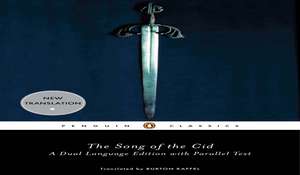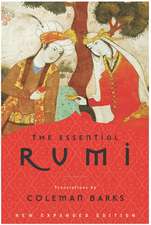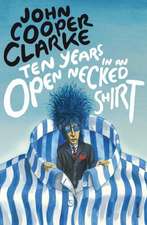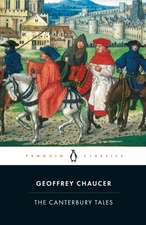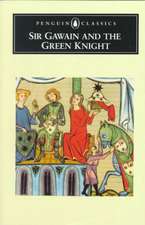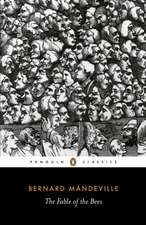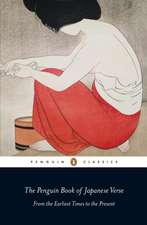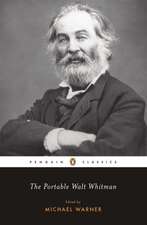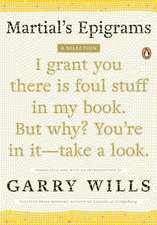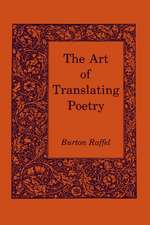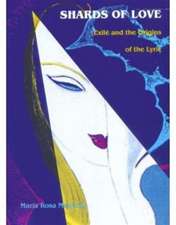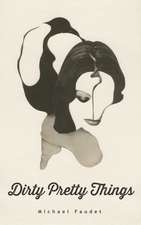The Song of the Cid
Maria Rosa Menocal Traducere de Burton Raffelen Limba Engleză Paperback – 28 feb 2009 – vârsta de la 18 ani
From a legendary translator: a magnificent new rendering of Spain's national epic
Venture into the heart of Islamic Spain in this vibrant, rollicking new translation of The Song of the Cid, the only surviving epic from medieval Spain. Banished from the court of King Alfonso, the noble warrior Rodrigo Diaz, know as the Cid, sets out from Castile to restore his name. In a series of battles, he earns wealth and honor for his men and his king, as well as fame and admiration for himself. But it is in rescuing his daughters from their ill-suited marriages that the Cid faces the ultimate challenge to the medieval heroic ideal.
Venture into the heart of Islamic Spain in this vibrant, rollicking new translation of The Song of the Cid, the only surviving epic from medieval Spain. Banished from the court of King Alfonso, the noble warrior Rodrigo Diaz, know as the Cid, sets out from Castile to restore his name. In a series of battles, he earns wealth and honor for his men and his king, as well as fame and admiration for himself. But it is in rescuing his daughters from their ill-suited marriages that the Cid faces the ultimate challenge to the medieval heroic ideal.
Preț: 100.44 lei
Nou
Puncte Express: 151
Preț estimativ în valută:
19.22€ • 20.04$ • 15.97£
19.22€ • 20.04$ • 15.97£
Carte disponibilă
Livrare economică 28 februarie-14 martie
Preluare comenzi: 021 569.72.76
Specificații
ISBN-13: 9780143105657
ISBN-10: 0143105655
Pagini: 254
Dimensiuni: 130 x 196 x 18 mm
Greutate: 0.23 kg
Ediția:Dual Language
Editura: Penguin Books
ISBN-10: 0143105655
Pagini: 254
Dimensiuni: 130 x 196 x 18 mm
Greutate: 0.23 kg
Ediția:Dual Language
Editura: Penguin Books
Recenzii
"A powerful epic of loyalty and betrayal-and victory in battle. Burton Raffel . . . renders The Song of the Cid in a lively, dramatic yet informal style that conveys the heroic yet humorous tone of the original [and] memorably conveys the qualities that enliven the poem: a combination of heroic grandeur, humor and the careful observation of human failings."
-The Wall Street Journal
"With a wonderfully informative introduction by Marfa Rosa Menocal, this welcome translation by Burton Raffel gives us a Song of the Cid-the foundational medieval epic poem of the Iberian peninsula-that retains the excitement and fast pace of the original."
-Edith Grossman
"In the spirit of Robert Fagles' renditions of Homer, Burton Raffel makes a rich oral tradition immediate to us again. His Song of the Cid is a lesson in translation: in a way that seems effortless, it transports the reader to a past that at first sight appears closed. Along with his warhorse, Babieca, Mio Cid once more tests his knightly limits while showcasing the religious tensions of medieval Spain. The original text made available alongside the English turns this edition into a feast."
-Ilan Stavans, author of Spanglish: The Making of a New American Language
"A brisk and instantly captivating new English version . . . Raffel's rendition serves to remind readers of the straightaway power of oral narratives . . . and captures much of the genius of the poem."
-Marfa Rosa Menocal, Yale University (from the introduction)
"An accurate, energetic, and much needed translation of The Song of the Cid. The rhyming and flow are elegant and measured. They beautifully reflect the dashing lines and excitement of the poem. A remarkable achievement."
-Francisco LaRubia-Prado, Georgetown University
-The Wall Street Journal
"With a wonderfully informative introduction by Marfa Rosa Menocal, this welcome translation by Burton Raffel gives us a Song of the Cid-the foundational medieval epic poem of the Iberian peninsula-that retains the excitement and fast pace of the original."
-Edith Grossman
"In the spirit of Robert Fagles' renditions of Homer, Burton Raffel makes a rich oral tradition immediate to us again. His Song of the Cid is a lesson in translation: in a way that seems effortless, it transports the reader to a past that at first sight appears closed. Along with his warhorse, Babieca, Mio Cid once more tests his knightly limits while showcasing the religious tensions of medieval Spain. The original text made available alongside the English turns this edition into a feast."
-Ilan Stavans, author of Spanglish: The Making of a New American Language
"A brisk and instantly captivating new English version . . . Raffel's rendition serves to remind readers of the straightaway power of oral narratives . . . and captures much of the genius of the poem."
-Marfa Rosa Menocal, Yale University (from the introduction)
"An accurate, energetic, and much needed translation of The Song of the Cid. The rhyming and flow are elegant and measured. They beautifully reflect the dashing lines and excitement of the poem. A remarkable achievement."
-Francisco LaRubia-Prado, Georgetown University
Notă biografică
Burton Raffel (1928-2015, translator) was a Distinguished Professor of Arts and Humanities Emeritus and Professor of English Emeritus at the University of Louisiana at Lafayette. He translated many works, including Cervantes's Don Quixote, Rabelais's Gargantua and Pantagruel (winner of the 1991 French-American Foundation Translation Prize), Chrétien de Troyes's Arthurian Romances, Balzac's Père Goriot, and Chaucer's Canterbury Tales. His translation of Beowulf has sold more than a million copies.
María Rosa Menocal (1953-2012, introducer) was the Sterling Professor the Humanities and Director of the Whitney Humanities Center at Yale. She wrote The Ornament of the World: How Muslims, Jews, and Christians Created a Culture of Tolerance in Medieval Spain and co-authored The Arts of Intimacy: Christians, Jews, and Muslims in the Making of Castilian Culture.
María Rosa Menocal (1953-2012, introducer) was the Sterling Professor the Humanities and Director of the Whitney Humanities Center at Yale. She wrote The Ornament of the World: How Muslims, Jews, and Christians Created a Culture of Tolerance in Medieval Spain and co-authored The Arts of Intimacy: Christians, Jews, and Muslims in the Making of Castilian Culture.
